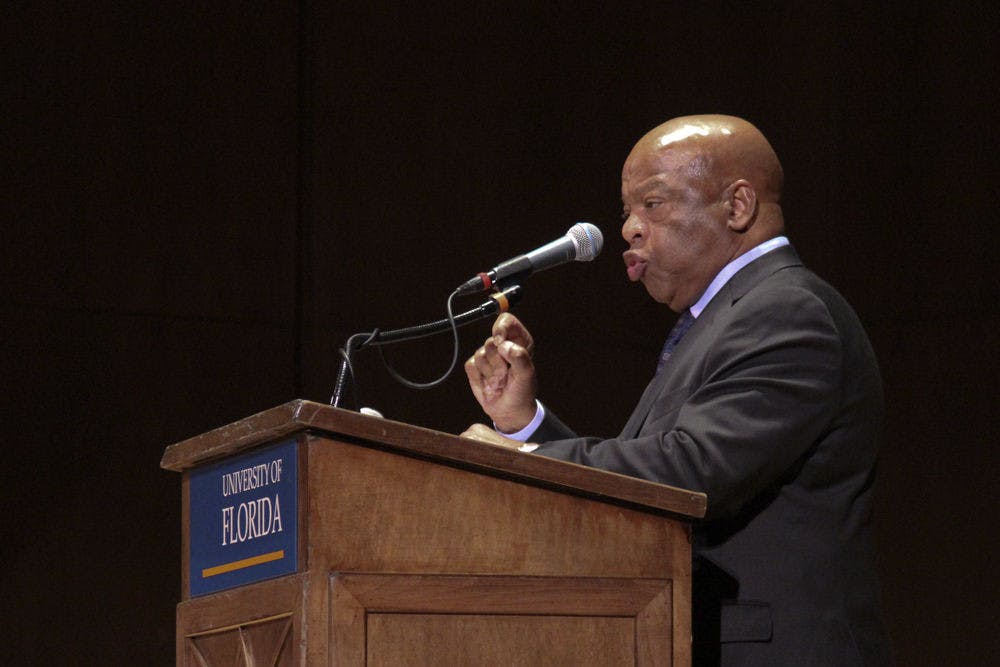Rep. John Lewis (D-GA) encouraged UF students and Gainesville residents Friday to get into trouble, but the good kind of trouble.
Lewis, the last surviving member of the Big Six civil rights activists, told stories about the Civil Rights Movement and the signing of the Voting Rights Act to about 500 people in the University Auditorium. He was brought to commemorate the act’s 50th anniversary.
He said he met Martin Luther King Jr. in 1958 and became involved in nonviolent protests.
The first time he got arrested in 1960, he said he felt liberated.
"I got in trouble," he said. "Good trouble. Necessary trouble."
He said he regularly saw black people standing in lines at courthouses, trying to register to vote by taking "literacy tests." Sometimes the tests asked black people to count all the bubbles on a soap bar or jelly beans in a jar.
He said he and other civil rights leaders met with President John F. Kennedy in 1963 to ask for a Civil Rights Act. After Kennedy was assassinated, President Lyndon B. Johnson signed the act on July 2, 1964.
Lewis said when King met with Johnson to request a Voting Rights Act, Johnson said there wouldn’t be enough votes from Congress to pass it. This led to the march from Selma to Montgomery.
"The story of Selma is the story of America," Lewis said.
Lewis said the day he marched he brought a backpack filled with food and toiletries with him in anticipation of spending time in jail.
He said when the activists crossed the Edmund Pettus Bridge, they were met by state troopers who began beating them. Lewis was hit in the head with a nightstick.
"I thought I saw death," Lewis said. "I thought I was going to die on that bridge."
Lewis said progress has been made since the Voting Rights Act was signed into law on Aug. 6, 1965, but there has been a deliberate effort to undo that work with the Supreme Court’s 2013 decision to invalidate Section 4 of the act, which requires states to get federal approval to change election laws.
He encouraged attendees to get involved in public service.
UF psychology sophomore Serdjine Applyrs said she wished more people could have heard Lewis’ message.
"I think it was really awe-inspiring to see this person who had been through it all," the 19-year-old said.
Contact Alexandra Fernandez at afernandez@alligator.org and follow her on Twitter @alexmfern
Civil rights activist and U.S. Representative John Lewis (D-Ga) speaks in the University Auditorium to celebrate the 50th Anniversary of the Voting Rights Act on Oct. 16, 2015. "Voting is the most sacred tool of nonviolence, and it must be used," he said.






